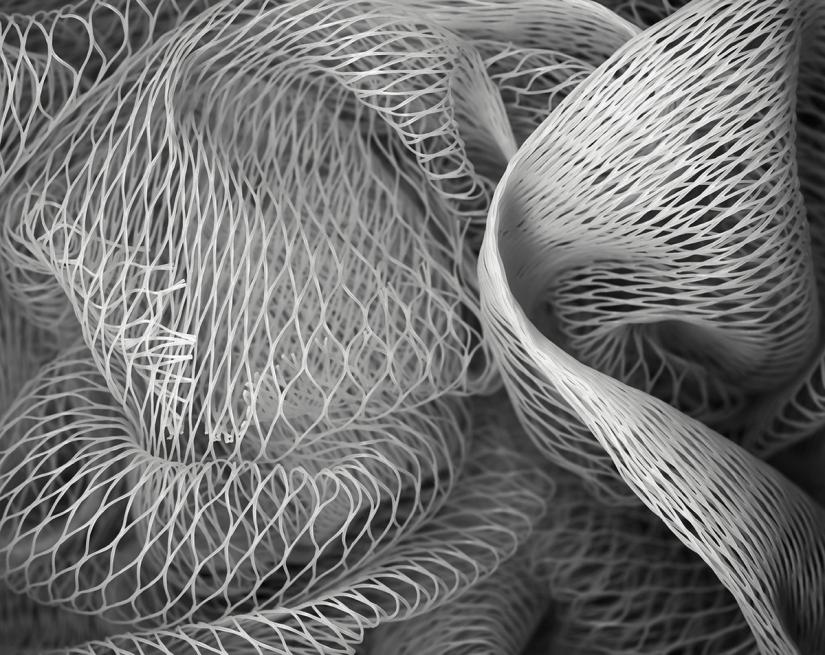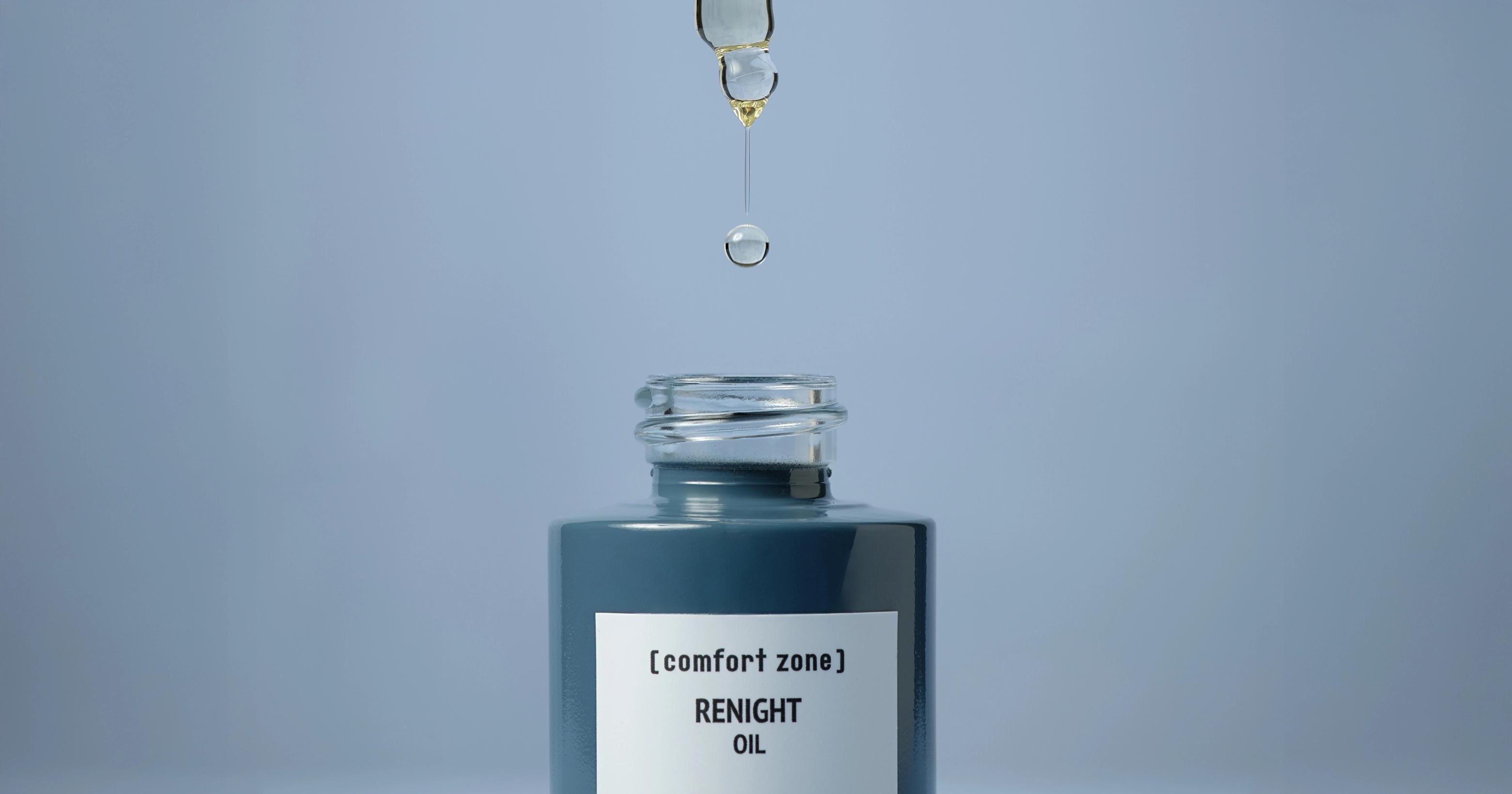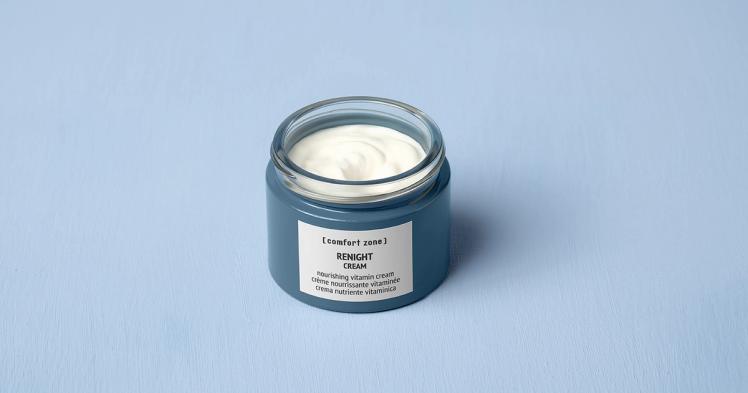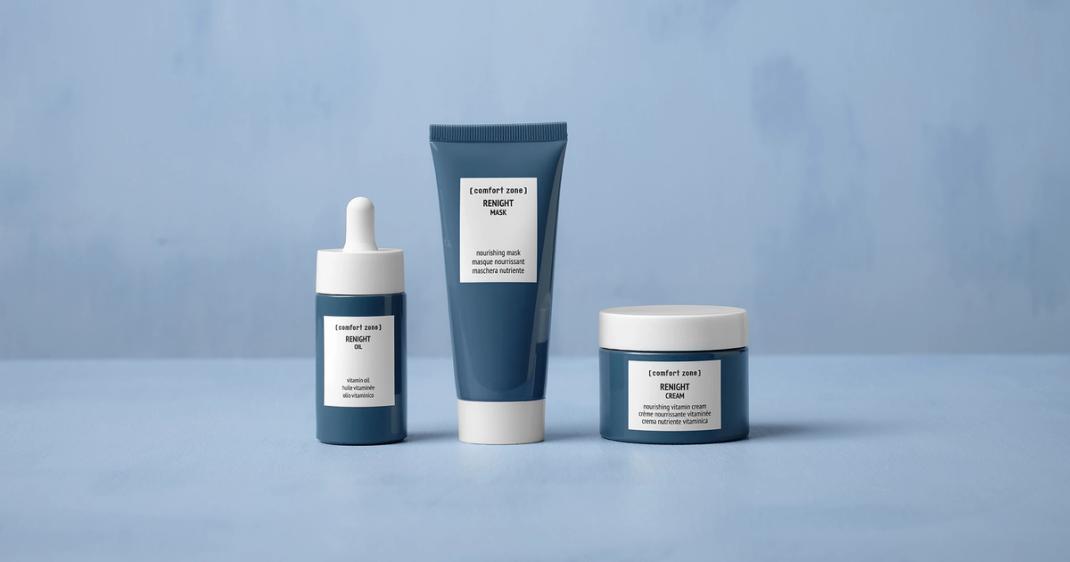Renight Oil
Nourishing vitamin oil
skin care
Eve Mérinville | Corporate RD Excellence & SC RD and Innovation Director
10 min read

Nighttime is the peak period for regeneration, as skin cell turnover is most active during this time. That’s why it’s essential to choose skincare products with key ingredients, such as antioxidants, to enhance and support this natural process.
It's not just what we do but also when we do it that makes the difference. This idea, simple yet crucial, is at the heart of chronobiology, a science that reveals the secret rhythms of our body and their influence on health and beauty.
At the center of it all is our circadian clock, a complex regulatory system located deep in the hypothalamus, where specific genes work together to create the 24-hour cycle that governs us. This central clock is not the only one; there are other clocks, known as peripheral clocks, which finely and specifically regulate organs, tissues, and cells.
The skin is an organ equipped with its own circadian clock, and aligning with its cycles is a rule as simple as it is effective for preserving its balance and beauty.
For the skin, nighttime represents the moment of maximum potential for regeneration. During rest, the skin intensifies its cellular turnover and activates repair processes for the damage sustained during the day.

Skin cell turnover is a fundamental process that preserves the skin's protective function while also improving its uniformity and radiance. It plays a key role in maintaining a smooth, radiant, and youthful appearance.
This natural and cyclical process enables the complete renewal of the skin's surface cells approximately every month. Turnover begins in the basal layer, the innermost part of the epidermis adjacent to the dermis. Here, basal cells divide: each mother cell generates two identical daughter cells. One remains in its original state to sustain the cell cycle, while the other embarks on a maturation journey.
During this maturation process, the cell synthesizes large amounts of keratin, a fibrous protein essential for providing strength, resilience, and waterproofing to the skin.Throughout this cycle, the cell gradually loses its nucleus, transforming into a corneocyte, a specialized structure that forms the skin's outer protective layer.
The renewal provided by skin cell turnover is the foundation of a fresh and rested skin appearance and contributes to...
The turnover process maintains the integrity of the skin barrier, ensuring its effectiveness in defending the skin against external aggressors such as UV radiation, pollutants, and pathogens.
By removing dead cells and revealing new ones, turnover promotes a smoother and more even texture that is pleasant to the touch and visually appealing.
Maintaining proper turnover prevents thickening that could compromise the absorption of skincare products, thereby reducing their effectiveness.
Constant cellular renewal prevents the buildup of dead cells, reducing the visibility of wrinkles, fine lines, and hyperpigmentation.
Regular turnover limits hyperkeratinization, which can contribute to the formation of comedones. If left untreated, these can worsen and lead to acne. It is worth noting that increased thickness of the stratum corneum combined with hyperactive sebaceous glands is often at the root of impure and acne-prone skin.

The peak in skin cell turnover observed during the night is not the only nocturnal skin activity. Skin cell turnover is accompanied by other physiological changes that are crucial for maintaining skin balance:
Peripheral blood flow increases at night, causing a slight rise in skin temperature. This phenomenon makes the skin barrier more permeable, facilitating the absorption of nutrients and active ingredients present in skincare products applied during this time.
During the night, the skin activates DNA repair mechanisms, eliminates damaged cells, and promotes the recovery of the skin barrier.
This phase is crucial for counteracting the damage accumulated during the day, including oxidative stress caused by light exposure, pollution, and even the skin cells’ metabolic activity.
The close relationship between the circadian rhythm, cell proliferation, and repair processes is essential for maintaining skin homeostasis and ensuring its long-term functionality. At night, therefore, the skin regenerates, repairs itself, and prepares to face new external aggressors the following day.
At every moment in life, the cells in our body produce free radicals, a natural consequence of physiological processes such as breathing, digestion, and cellular metabolism. Free radicals are "unstable" molecules characterized by the presence of an unpaired electron. To restore their balanced state, they capture the missing electron from other structures, making these structures reactive in turn. This triggers a chain reaction of imbalance, potentially harmful to the body, known as oxidative damage.
To counteract the constant attack of free radicals and safeguard health and beauty, the skin, like the rest of the body, is equipped with endogenous antioxidant systems that work primarily during the night.
As we age, the natural process of cellular turnover in the skin slows down significantly, along with the skin's reparative antioxidant capacity.
This dual weakening impairs the skin's ability to renew itself effectively, leading to visible changes in texture, tone, and radiance. On the skin's surface, an accumulation occurs, commonly referred to as the "cement effect." The result? Dull, grayish-toned skin that struggles to reflect light properly.
Internally, free radicals damage skin structures, weakening the functionality of cells and the protein structures of collagen and elastin. The skin progressively appears less radiant and less firm, accompanied by a gradual decrease in the effectiveness of cosmetic products. With old cells blocking the skin’s entry pathways, active ingredients struggle to penetrate deeply, resulting in reduced performance.
There are behavioral strategies that can truly make a difference and support our internal regulation, which is the foundation of our skin’s beauty. Just think of the fatigue we feel when we don’t sleep well. This can be seen as the tip of the iceberg of a broader imbalance that affects both health and beauty. When the sleep-wake cycle is disrupted, the optimal release of GH (growth hormone) and melatonin is interrupted, leading to negative effects on overall health and a visible impact on skin beauty.
Regenerative processes function optimally only when our sleep is synchronized with the production of these hormones. Sleeping well and regularly, therefore, is not just a pleasure but a natural remedy essential for maintaining youthful, radiant, and healthy skin.
Blue light also has a profound influence on the circadian rhythm, significantly affecting sleep quality.
Exposure to this light, especially in the evening, can delay the onset of sleep and compromise its quality, as it appears to influence the release of melatonin, the hormone that regulates the sleep-wake cycle.
The evening beauty routine plays a fundamental role in activating the skin's cellular turnover. During the night, the skin enters an optimal regenerative phase, making it the ideal time to apply exfoliating treatments.
Chemical exfoliation is a widely used technique to accelerate skin turnover. It employs compounds such as alpha-hydroxy acids (AHAs), including glycolic acid, lactic acid, and mandelic acid, as well as retinoids, which are vitamin A derivatives.
AHAs work through a keratolytic effect, weakening the intercellular bonds between corneocytes and promoting their detachment. This process accelerates skin renewal and improves overall skin quality. Their effectiveness depends on concentration and pH: at low concentrations, AHAs hydrate by retaining water molecules; at higher concentrations, they promote deep exfoliation, improving skin texture and evening out skin tone. However, the choice of acid and its concentration must be carefully personalized to minimize irritation or sensitization.
Among vitamin A derivatives, retinol is particularly notable for its dual action: in addition to promoting exfoliation, it stimulates the synthesis of collagen and elastin, key structural proteins essential for maintaining skin elasticity and firmness.
The advanced formula with a retinoid complex and Longevity Complex™ offers intensive renewing action. The creamy and lightweight texture ensures a feeling of comfort and smoothness, while the encapsulated retinol and retinal work to help renew the skin and reduce the appearance of wrinkles, signs of aging, and loss of firmness.
Pre-soaked cotton pads for both mechanical and chemical exfoliation to reduce signs of aging and achieve a brighter complexion. Formulated with glycolic, lactic, and citric acids.
For chemical exfoliation to maximize its effects, it is essential to prepare the skin. Proper hydration and the use of suitable nutrients improve skin permeability, optimizing the absorption of active ingredients.
Additionally, incorporating antioxidants into the nighttime routine is crucial. Free radicals, if not counteracted, can reduce the effectiveness of exfoliating treatments and hinder the regenerative process. Using antioxidants helps repair oxidative damage, enabling the skin to respond more effectively to exfoliating stimulation.

Comfort Zone’s Renight line provides a complete nighttime skincare routine designed to shield your skin from free radicals, which are exacerbated by factors like sun exposure, smoking, pollution, and unhealthy diets. Enriched with nourishing vegetable oils, antioxidants, and vitamins, these luxurious formulas work overnight to leave your skin radiant and refreshed by morning.
It is a vitamin-rich face cream that takes advantage of the skin's nighttime biological window, when the regeneration process is at its peak, to promote an effective antioxidant action. This is achieved through the synergy of Goji Berry Oil and hydrolyzed Tomato Extract, delivered in a rich, nourishing texture that is both pleasant and essential for skin wellness.
A creamy mask with nourishing and antioxidant action that preserves the skin barrier in a simple and quick way. Formulated with natural oils and hyaluronic acid, it requires no rinsing: with a single step, its effectiveness is activated to work during nighttime rest.
If your skin is undernourished and you’re looking for a nighttime treat, Renight Oil is the perfect answer! This multivitamin face oil is made from a precious blend of plant-based oils with a silky, non-greasy touch.Formulated with certified organic Goji Berry Oil and Macadamia Oil, it promotes a dual nourishing and antioxidant action. Ideal for all skin types, especially undernourished, dry, and tired skin.
Skin Cycling is a four-night skincare regimen that involves using exfoliating and nourishing products to detoxify and protect the skin’s barrier. Suitable for all skin types, for both men and women.
Skin cell turnover is a vital process that keeps our skin looking youthful and radiant by constantly renewing its surface. Adopting practices like prioritizing quality sleep, using exfoliating treatments, and incorporating antioxidants into your skincare routine can help boost regeneration and maintain a smooth, glowing complexion. By understanding and supporting the natural processes of skin renewal, you can promote long-term skin health and a more youthful appearance.
Nourishing vitamin oil
Nourishing vitamin cream
Nourishing vitamin mask
Anti-wrinkle serum